On floating with Joe Minihane
(7 minute read)
Inner reflection, connecting with the infinitesimal, disconnecting with the world… Travel writer and author of Floating: A Life Regained, Joe Minihane swims (and floats) in rivers, lakes, lidos and bays to temper his anxiety and find emotional tranquillity. We asked him to explore just why floating is so ridiculously relaxing.
Photography by Ben Cox
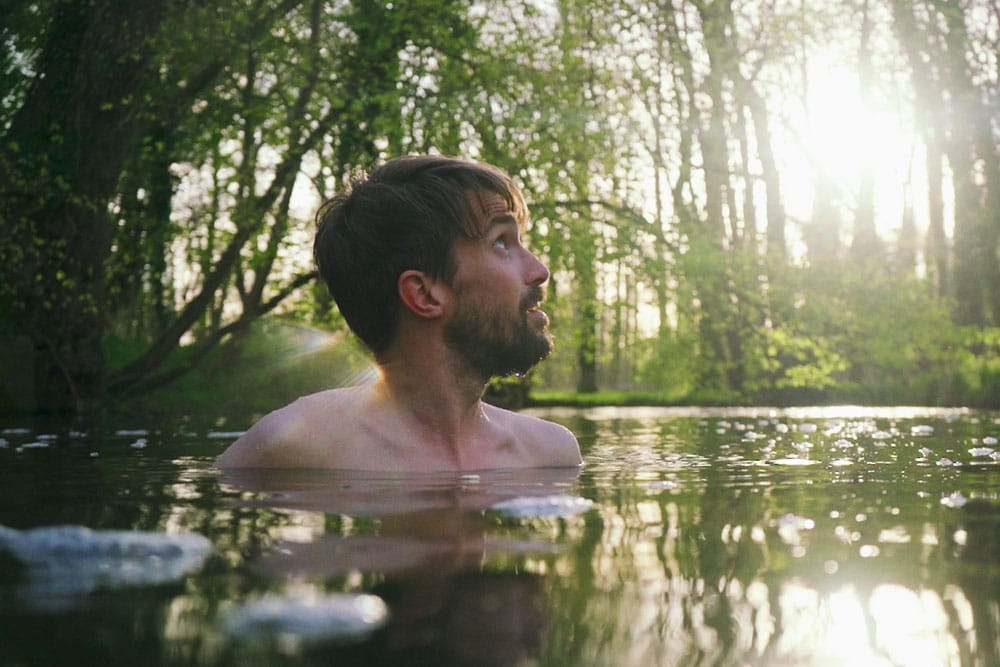
Floating: the act of spreading one’s arms and legs wide, each ear slipping just beneath the surface to ensure equilibrium. It is the purest form of communion with the water, where the swimmer’s prowess and ability, their ego, can be wholly disregarded in favour of something far more spiritual and grounding. It is the opportunity to be at one with nature, the dampened ambience of the outer world replaced with the chance for deep listening and contemplation. Eyes can be opened to the sky and its myriad happenings, or closed for inner reflection, the throb of the sun, the attention of a gentle breeze, heightened by the darkness.
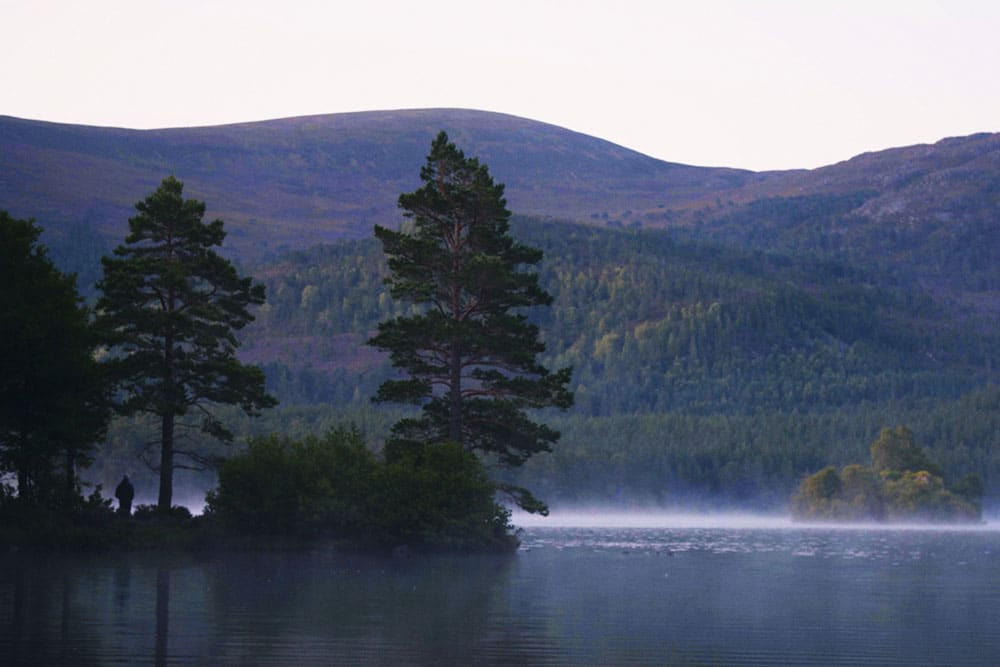
There is, of course, a sweet spot for such a state to be fully enjoyed; when the lake, the sea or the river has had the time to go from bone-chiming chill to a bath-like (or at least more moderate) bliss, lessening the odds of a juddering shock zipping down the spine when settling into the right position. It helps if the sun is working its magic, spreading itself across the surface, or at least peeping out from behind fair weather cloud.
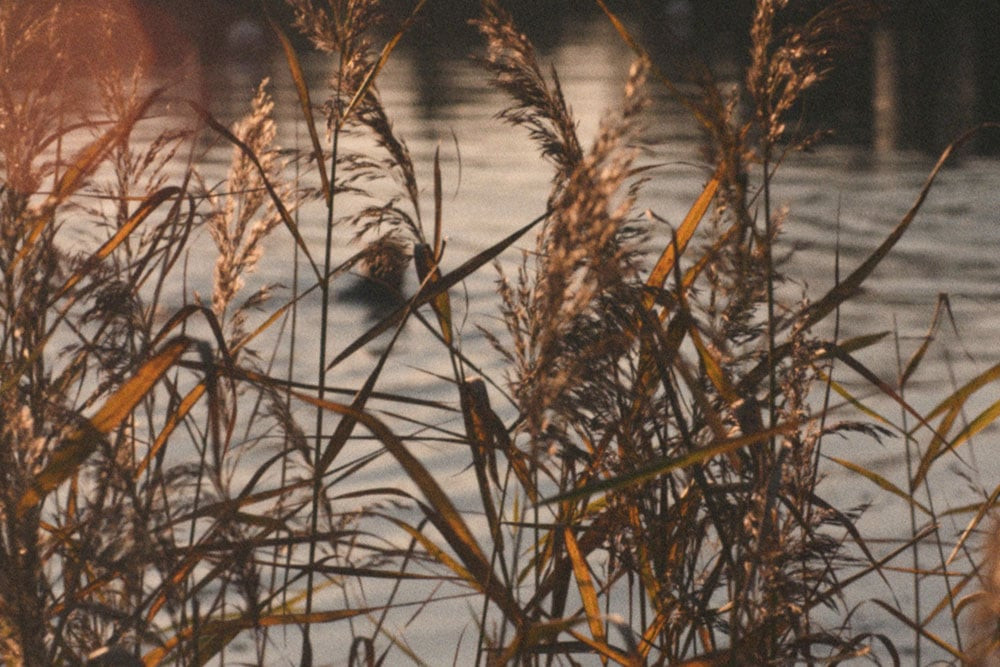
For years, I believed the act of swimming was the sole way in which I gained a greater appreciation of the natural world and, by extension, my own mental state. The sweep of my arms, the kick of my legs, the lengthening of my breath worked in conjunction with one another to create a flow state where survival, the moment, became my sole focus, and anxiety, stress and depression were eased and dampened, the attendant dopamine rush rendering my struggles in a less all-consuming light.
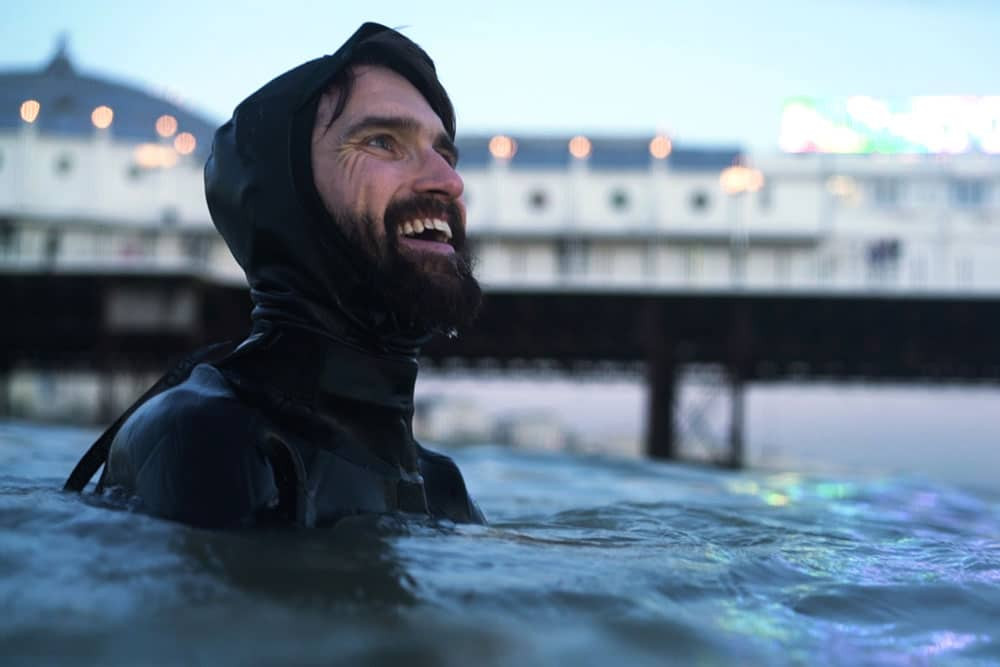
Gradually, however, I have come to realise that while swimming is important, floating is vital. It is the opportunity to allow the stillness and simplicity that my strokes have afforded me to settle down even further, to seep into my soul and my subconscious. It also offers a way to be more readily in touch with how infinitesimal I am. With my eyes open, I can watch high clouds scudding above me, the swoop of herring gulls and the dashing flight of cormorants and see my place in the universe as something impossibly small and yet utterly wondrous. It is the way in which I use my body to get closer to my mind and, by extension, feel myself reaching out beyond my physical being.
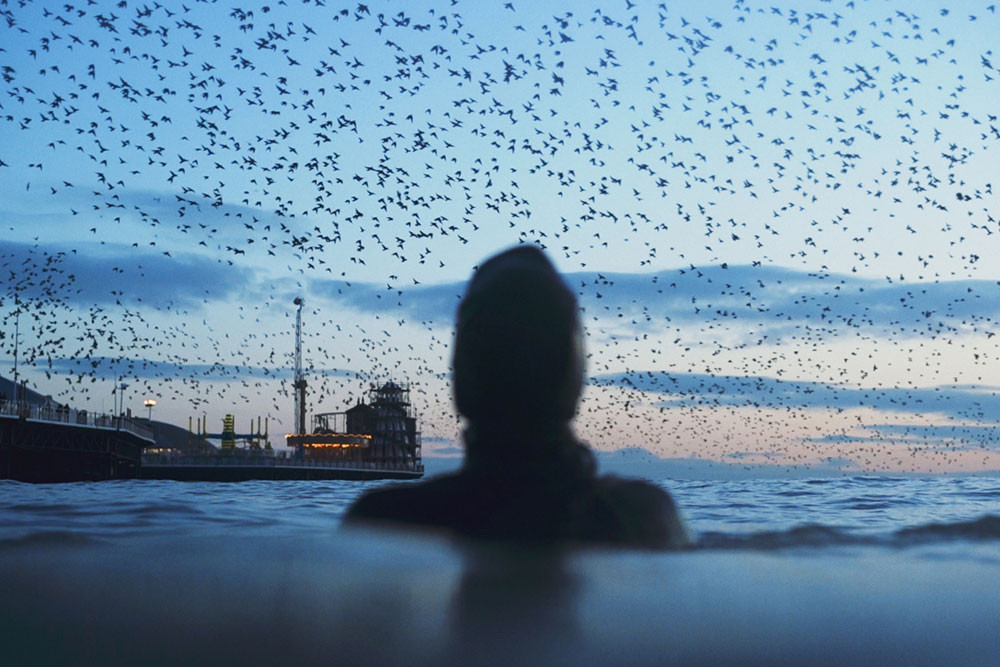
“I have come to realise that while swimming is important, floating is vital… It is the way in which I use my body to get closer to my mind and, by extension, feel myself reaching out beyond my physical being.”
This is, naturally, more challenging in the winter months, when swimming outside can feel like an act of defiance and simply immersing oneself can bring on a sense of aliveness that can burn through the body for hours after drying off. So while it is still warm, I make the most of the opportunity to float, looking to imbue myself with this power for when the nights draw right in and the urge to come to the water’s edge dissipates. I tend to leave my goggles and hat back at home and swim towards the yellow buoys which mark the swim area off of Brighton beach, a short walk from my home.
After a hundred or so steady breast strokes I spin on my back and watch for a chink of blue sky or listen out for the call of common terns diving for prey. Here I cannot be reached. My phone will not work in the sea, the pressures of work, of home and of the world are left behind. I allow the current to carry me and take slow, long breaths. Sometimes I can feel as if I am sinking, but when I look up I realise it is merely the sensation of my brain delving deeper, feeding off old memories buried far below the surface.
The quality of the light is different depending on the time of day, the way it hits my face by turns enlivening and soothing. Every time it feels different. No float is the same, much in the same way no swim can compare with its predecessor or successor.
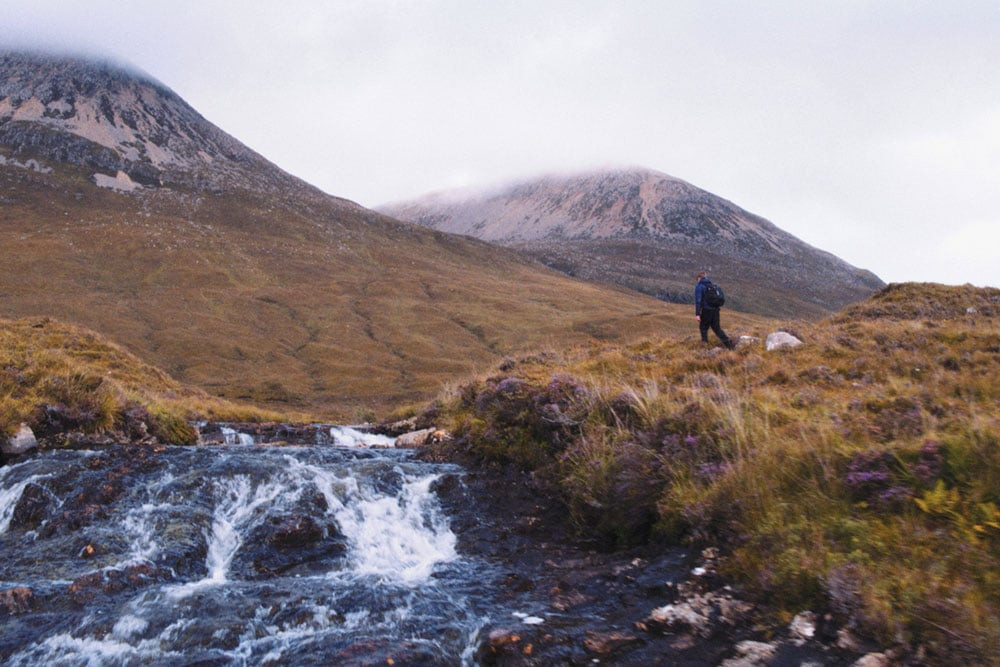
“Here I cannot be reached. My phone will not work… the pressures of work, of home and of the world are left behind. I allow the current to carry me and take slow, long breaths.”
Floating’s deeply contemplative nature also means it lends itself to stirring memories of other such similar experiences. I can be lying on my back in the English Channel and be transported to Easedale Tarn, in the heart of the Lake District, as a late summer shower teems down, raindrops running through my beard, the Fells around me a powerful presence that I can almost reach out and touch. I can be in the flow of the River Waveney, where Suffolk meets Norfolk, the sound of fellow swimmers ringing in my ears, the itinerant spirit of the late naturalist and author Roger Deakin close at hand. And I can be prone in the spinning rush of the pools near Torrin on Skye, fighting the urge to break free and swim as the cold roar of the mountain stream causes my temples to ache.
Floating, at its heart, is a chance to be both wholly present and completely outside oneself. The fact it doesn’t require any particular skill and eschews the tyranny of timekeeping and specialised equipment makes it all the more alluring.
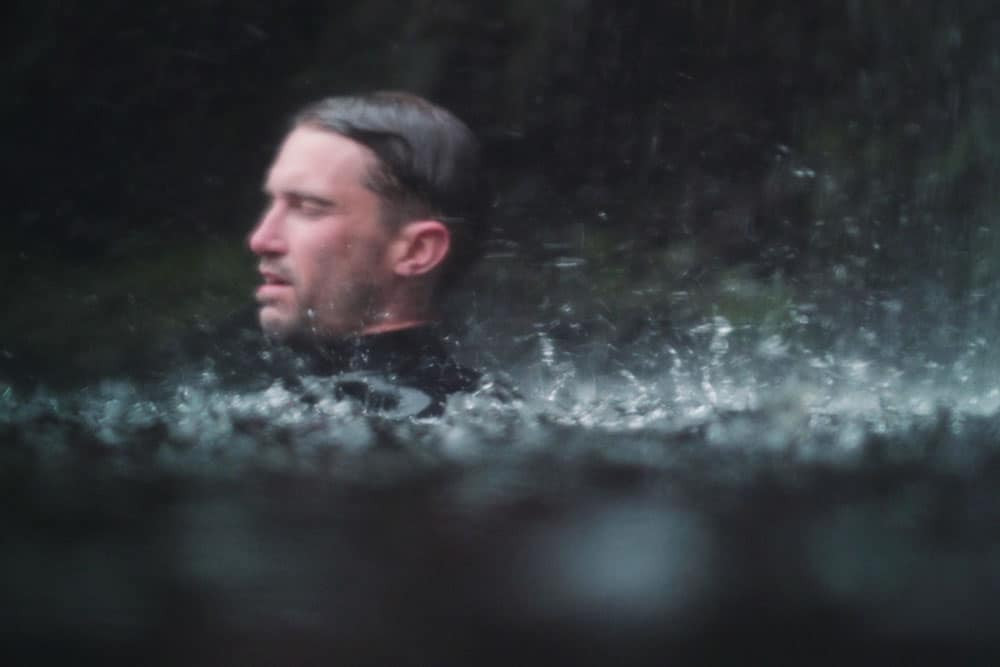
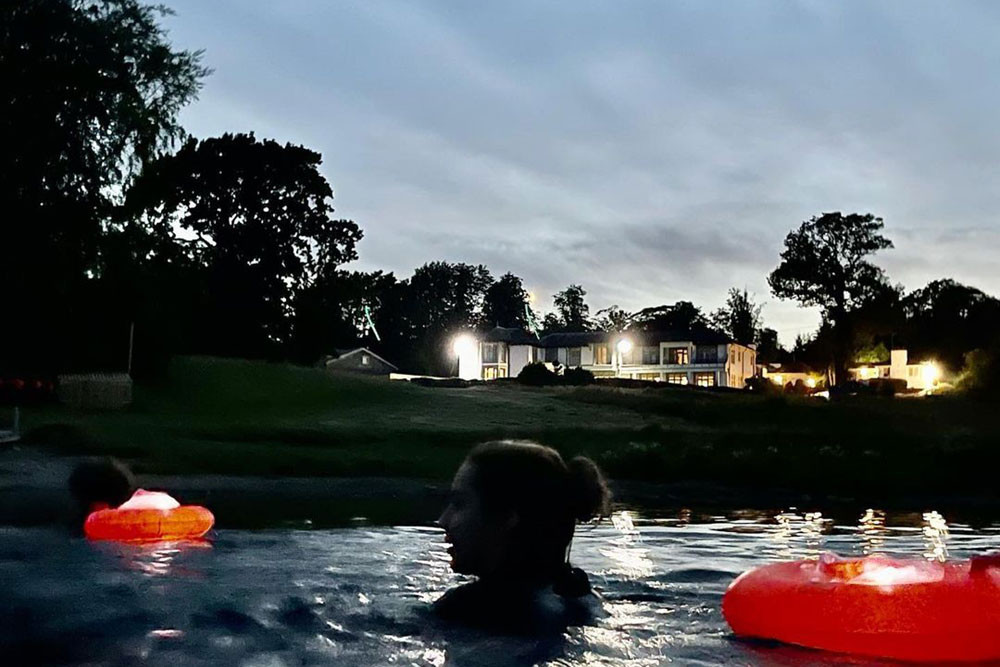
Open water and night swimming
Right on the lakeshore, Another Place creates the ideal location to venture into the lake. Whether swimming or just floating, day or night, our guided swims led by open water swimming expert Colin Hill, are suitable for all. Dip your toe an introduction to open water swimming or go for the full cross lake swim. Hone your technique with the endless pool, or take to Ullswater at night for a full moon or stargazing swim.